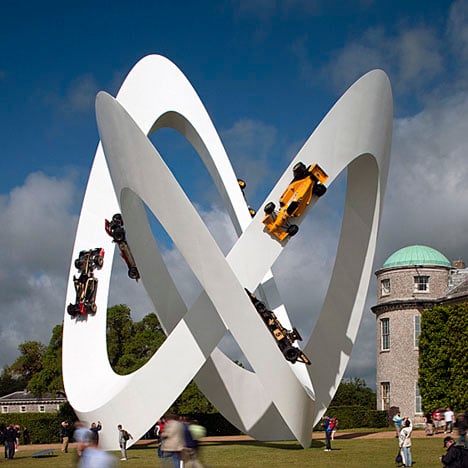
Lotus Sculpture by Gerry Judah
Designer Gerry Judah has created this white knotted sculpture of a race track for car brand Lotus at Goodwood Festival of Speed, which took place in West Sussex last weekend.
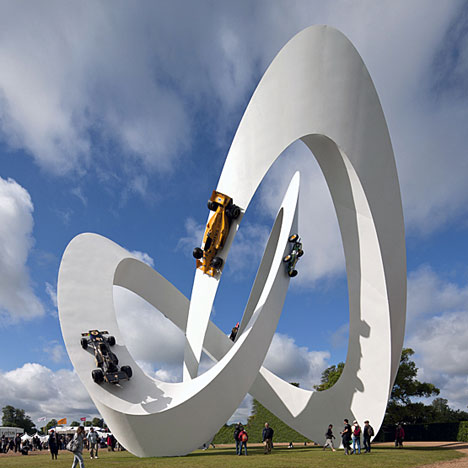
The structure features six historic Lotus Formula 1 cars secured onto 150 metres of winding road.
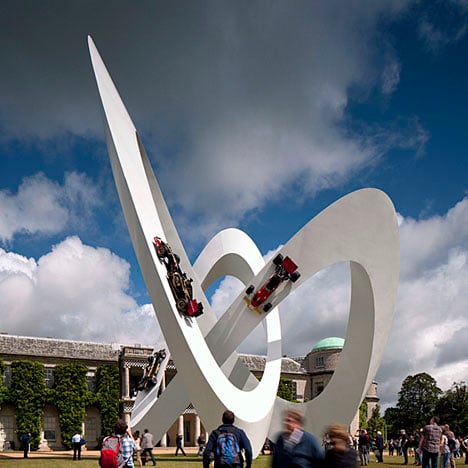
The hollow, 60-tonne sculpture is made from sheets of steel that have been joined at the edges to create triangular sections, which are self-supporting and require no internal frame.
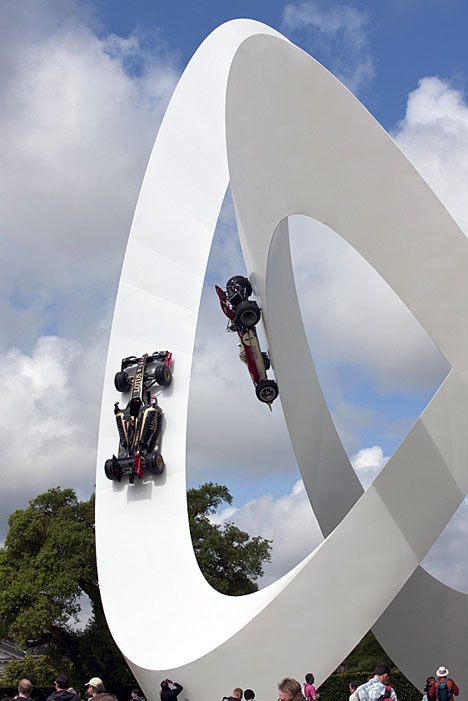
This construction technique was used in tribute to Lotus founder and designer Colin Chapman (1928-1982) who introduced the monocoque chassis to automobile racing, enabling the chassis and body of a car to be made in one piece.
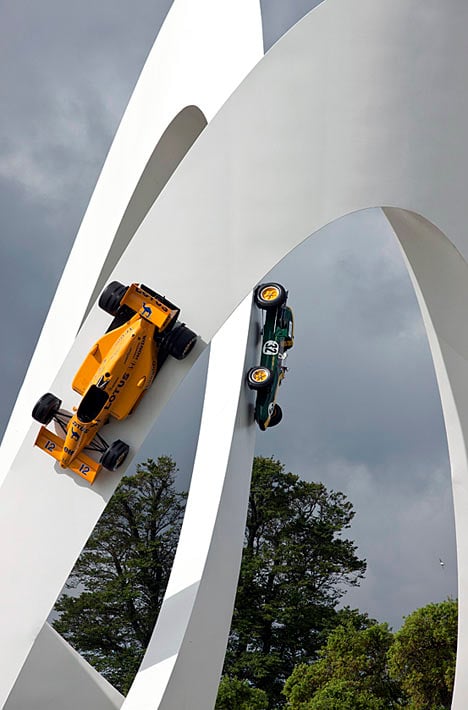
Judah creates an enormous car sculpture for the festival every year and you can see his previous ones here.
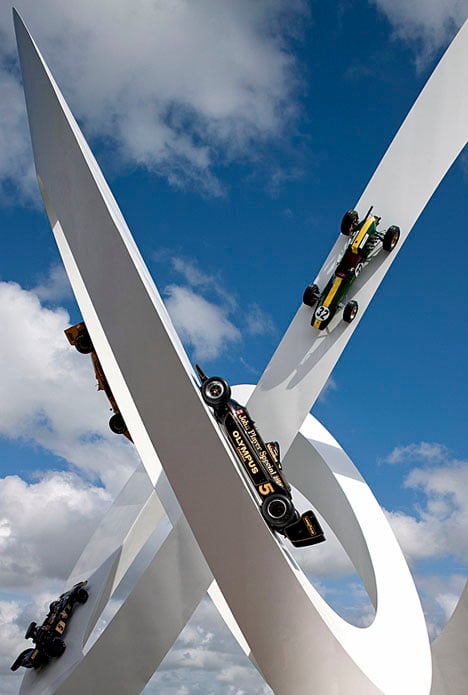
Photographs are by David Barbour.
Here’s some information about the project:
Lotus Sculpture, Goodwood Festival of Speed 2012
It is 2012 and every year a different car company sponsors a centrepiece sculpture for the Goodwood Festival of Speed. This is the sixteenth in a row that Gerry Judah has designed and produced, and this year it is bigger, more daring and beautiful, and more spectacular than ever before.
The sponsor this year is Lotus Cars. The sculpture itself is six historic Lotus Formula 1 cars driving on a winding road that has been tied into the shape of a half-hitch, or trefoil, knot. The road length is 150 metres, and the whole installation weighs 60 tonnes. There are six classic Formula 1 cars: the Lotus 32B (Jim Clark 1965), Lotus 49B (Graham Hill 1968), Lotus 72E (Emerson Fittipaldi 1973), Lotus 79 (Mario Andretti 1978), Lotus 99T (Ayrton Senna 1987) and the latest Lotus F1 Team challenger.

The sculpture is a triangular section, each of the three sides is what we call a continuously variable curve developable surface. This means that we start with flat sheet metal curves that can be rolled up and joined into three dimensional luxurious shapes. The result is a lightweight, extremely strong and rigid thin-shell structure, with no internal framework or core. Inside it is all empty space and what you see is the structure itself. The sculpture is 98% empty space. In automobile terms this would be a monocoque body, a tribute to the legendary designer and Lotus founder Colin Chapman's introduction of monocoque chassis construction to automobile racing.
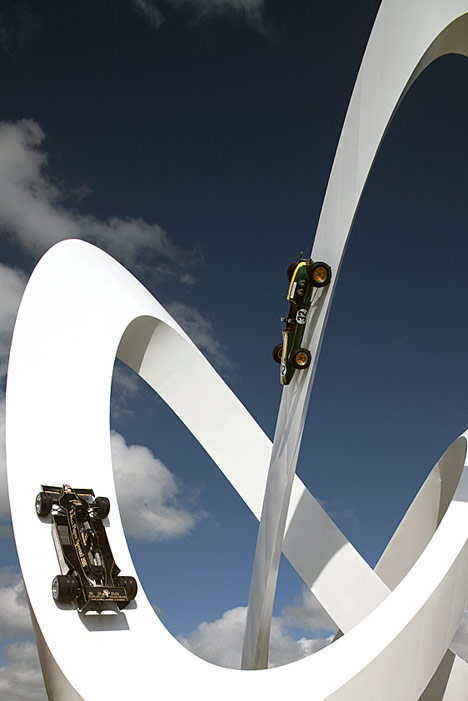
What we have here is a technique for building freeform shapes. In the future we expect that lots of structures will be built like this, from bridges and large span buildings, to roller coasters, but before that we will be building some even more spectacular sculptures.
Client: Lotus Cars
Design and production: Gerry Judah
Engineering: Capita Symonds
Fabrication & installation: Littlehampton Welding
Photography: David Barbour